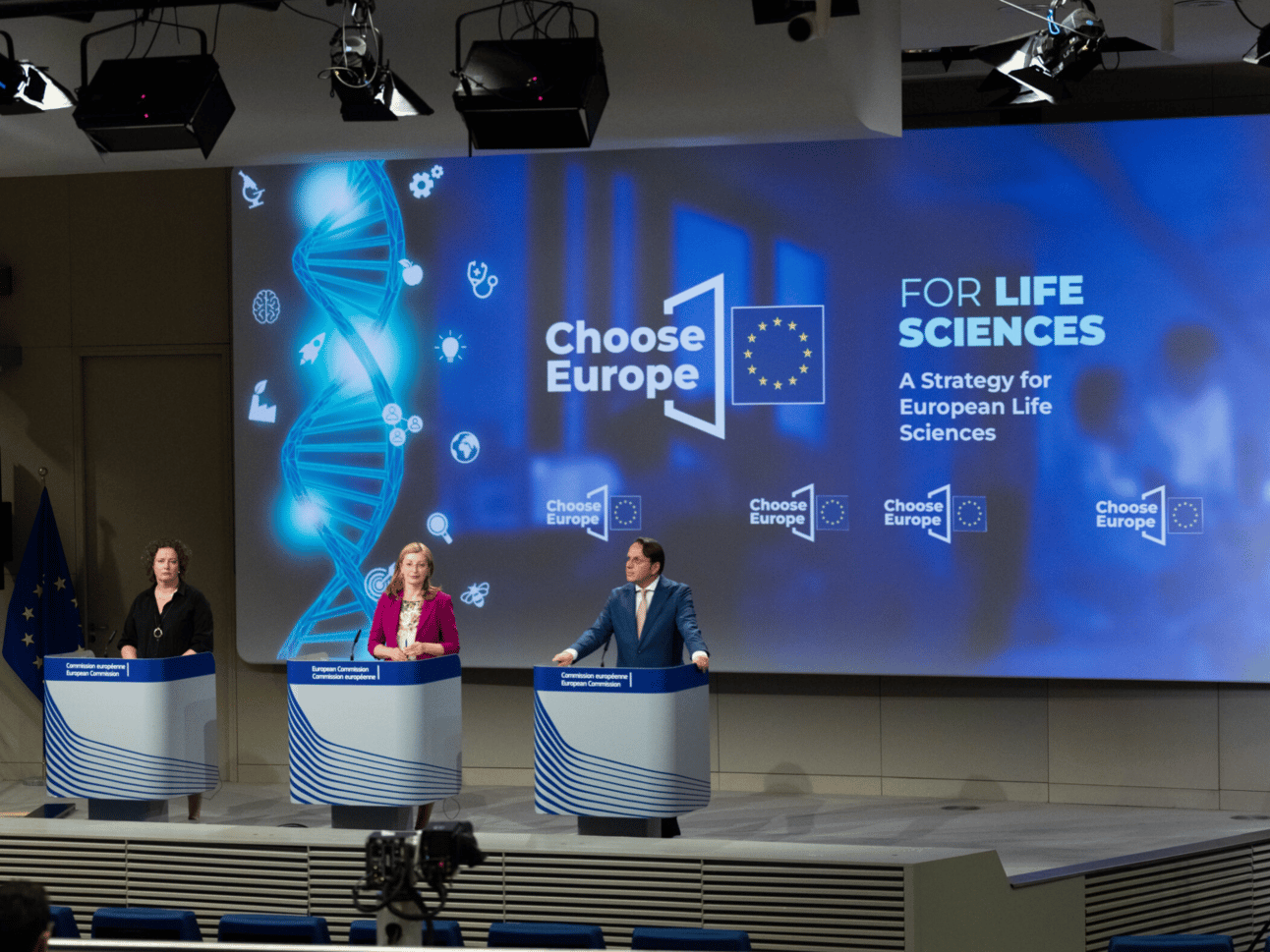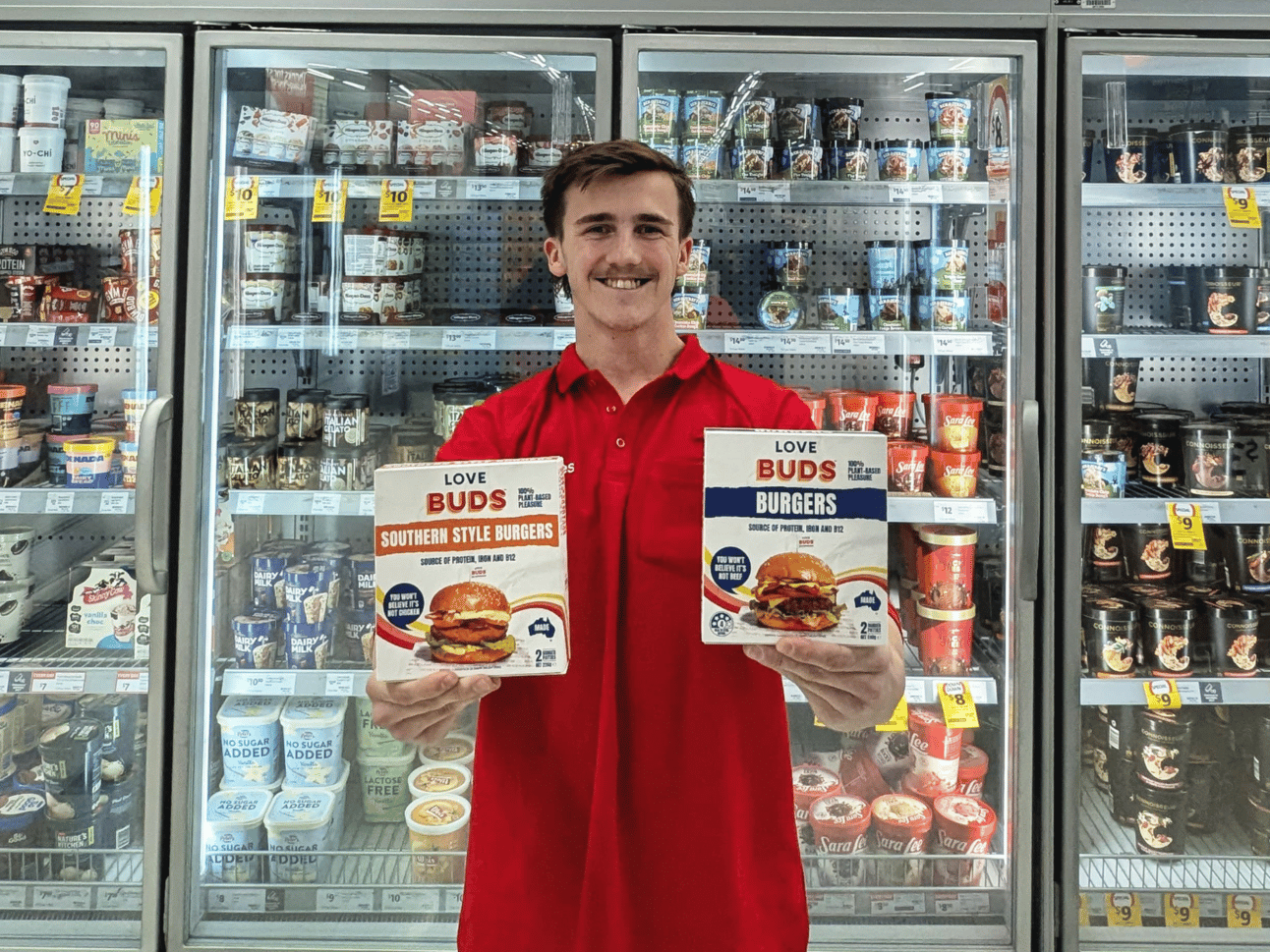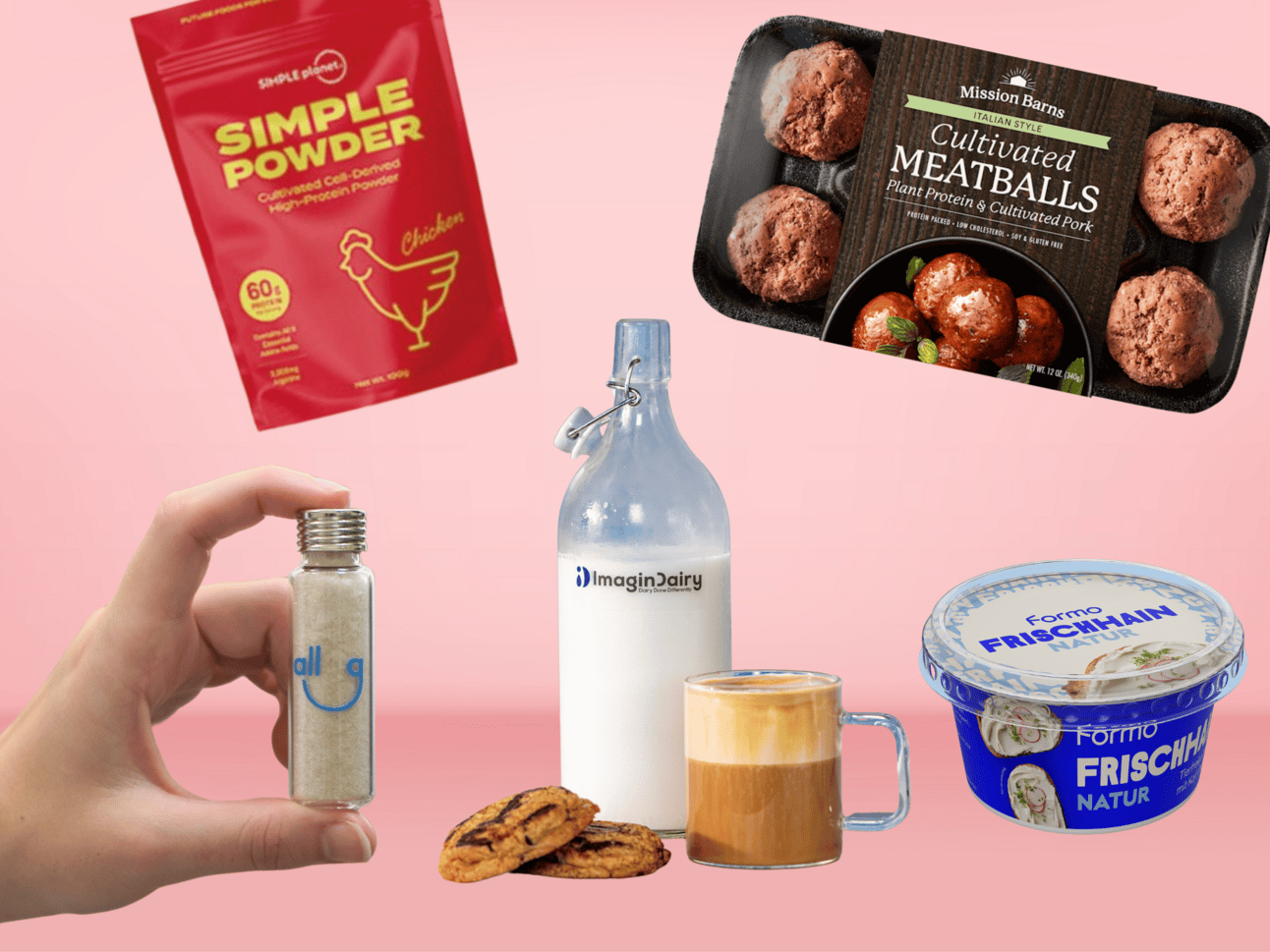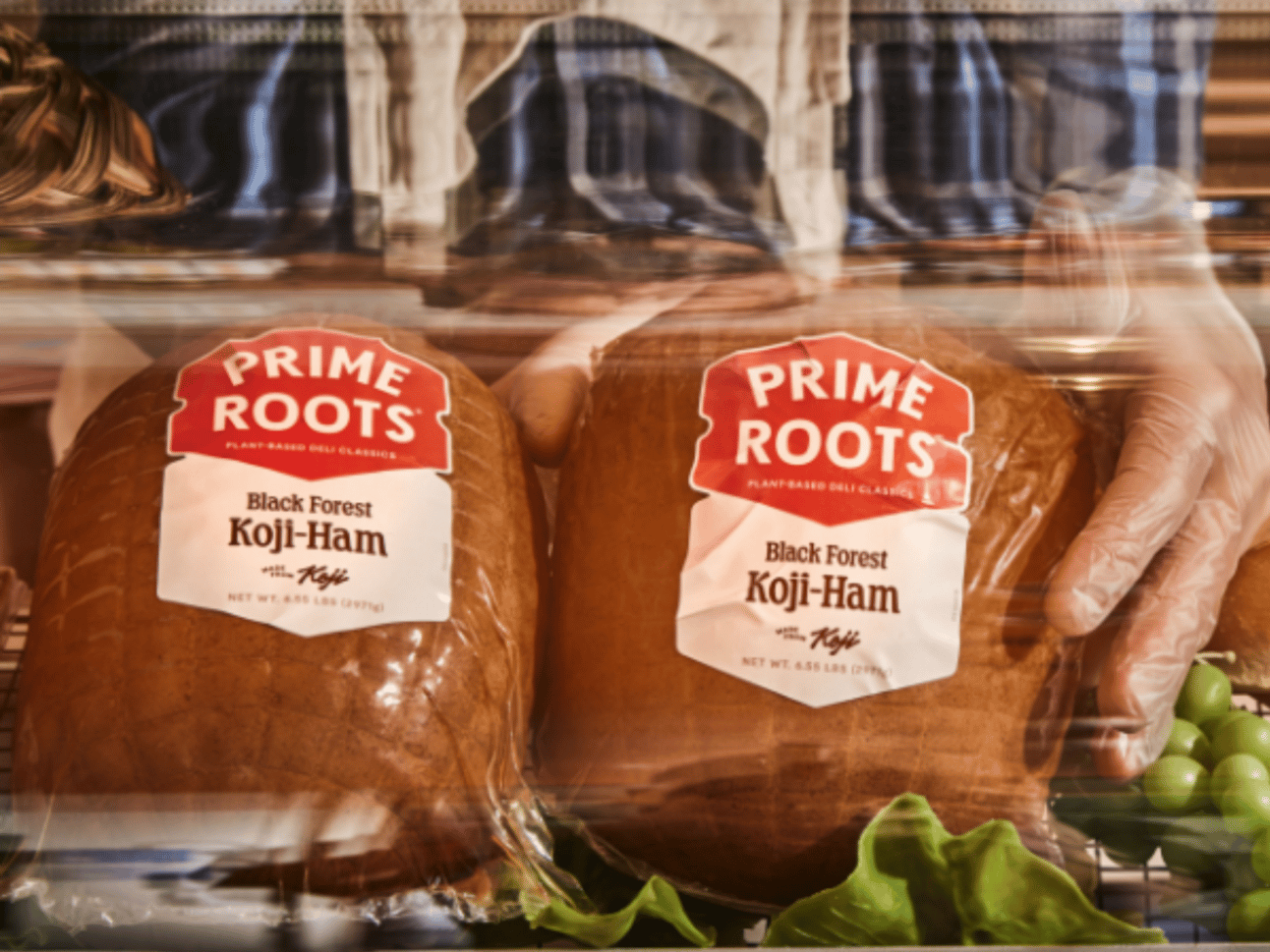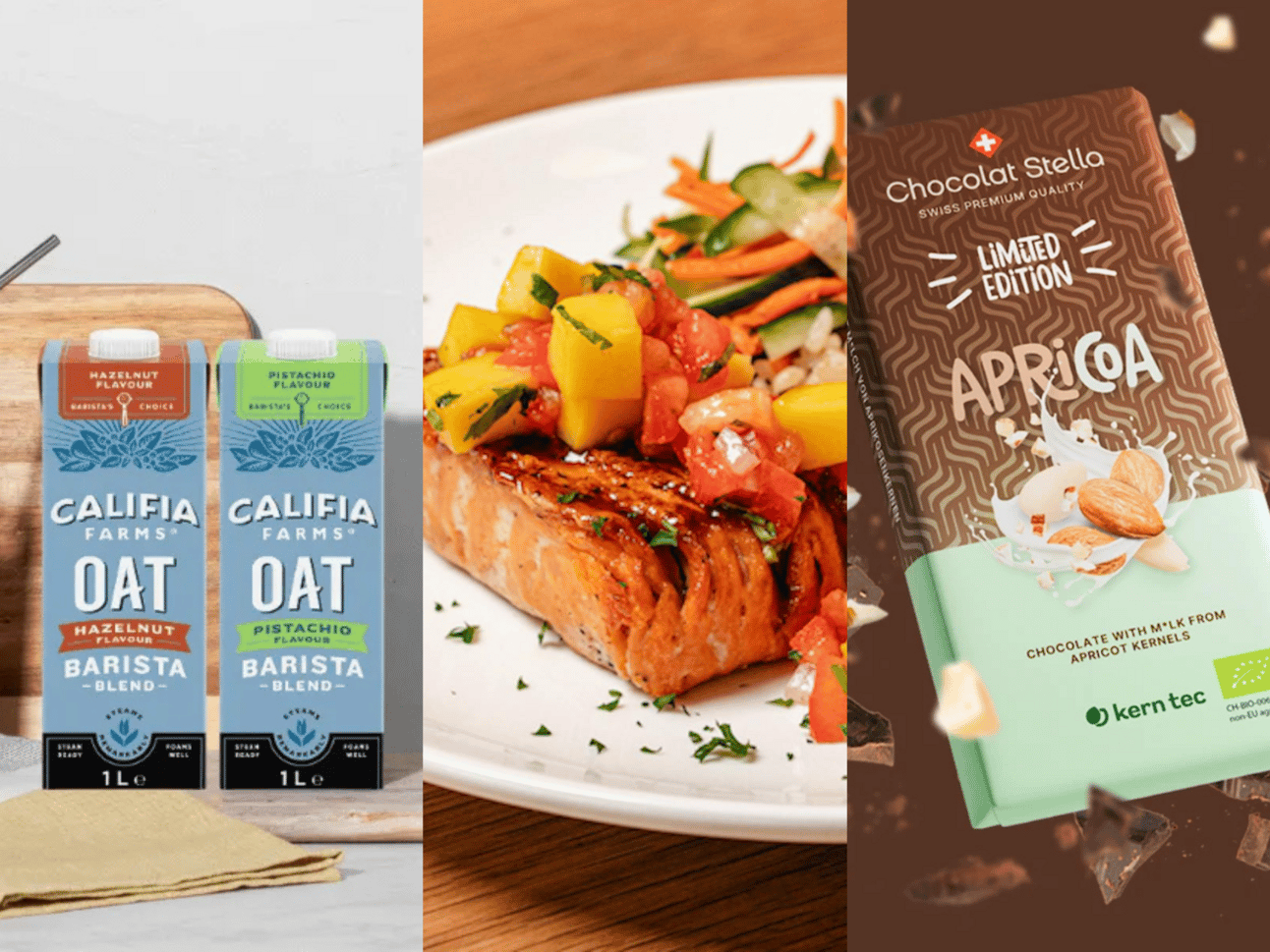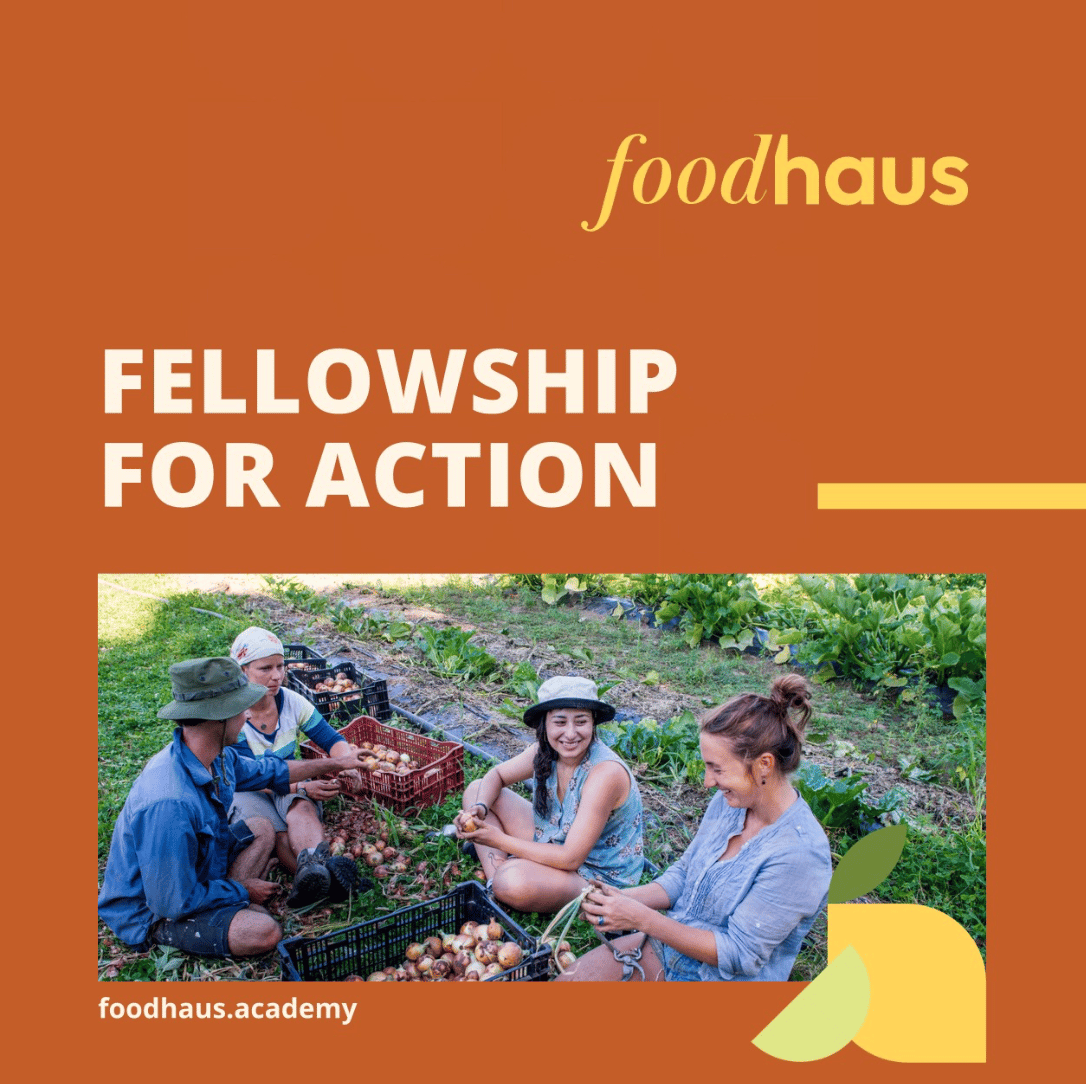- Green Queen Future Food Weekly
- Posts
- The Funding Gap for Synbio Foods — Future Food Weekly
The Funding Gap for Synbio Foods — Future Food Weekly
Plus: climate-smart eating for kids, Switzerland's landmark labelling rules and plant-based GLP-1 nutrition. This and more in Green Queen Media's global roundup on future food news.
Morning folks,
I got some great feedback on my ‘off the cuff’ observations in last week’s newsletter, so I am going to do the same this week. We’ve got so many great pieces this week, but these three stood out to me in terms of importance and trend insights:
Funding gap for synbio foods: The amount of funding governments are allocating towards synbio foods is nowhere near what the industry (or the climate) needs, and two stories we just reported on illustrate the stark delta. Last week, we covered a new report by Advanced Biotech for Sustainability (AB4S), a coalition of companies and organisations including L’Oréal, Lallemand, EIT Food, the Good Food Institute, and Arsenale Bioyards. The report suggests that up to 60% of all physical inputs globally could be produced or replaced with bio-based methods, but at least $500 billion in investments is required. This week, the EU Commission announced that it has set aside a paltry $350 million in funding for food and biotech innovation. Yes, that’s millions. A literal drop in the bucket of what’s needed.
Plant-based GLP-1 nutrition: The Ozempic economy continues to grow, and this week, Kate Farms, the plant-based nutrition brand which was recently acquired by Danone, has announced two new high-protein shake products. There are plenty of products serving the mainstream, non-plant-based GLP-1 population, but not enough for folks looking for low-carbon/plant-based options demand solutions. My prediction: Plant-based nutrition aimed at the GLP-1 population is going to be a high-growth niche. This is a smart supply chain play by Danone, too; dairy has an outsized carbon footprint.
Climate-smart eating for kids: Another niche that Danone is cornering? Climate-smart eating for kids. Alpro, the plant-based dairy brand owned by the French giant, debuted a new line of products geared at the little people in our lives. I am extremely bullish on this. I myself am attempting to raise two climate-smart eaters, and while I do my best and make them as much homemade food as possible, I am regularly confronted with how few genuinely good products there are at the grocery store. Climate-forward, low-processed, nutritious and quality foods for kids? A true blue ocean, folks. There are many more parents out there like me. Also, I may need to invest in some Danone stock…
Animal welfare transparency: Switzerland’s new animal welfare labelling laws are genuinely revolutionary, and it’s been surprising how little mainstream media coverage they have received. As much as it sometimes feels we are making very little (or very slow) progress on so many of the urgent issues that affect our food systems, this feels like a pretty big win and a sign of things to come. And not just for vegans. Poll after poll shows that a majority of people are in support of treating livestock animals better (though that doesn’t stop most people from regularly consuming animal products borne from suffering. Another prediction: this type of supply chain transparency is going to become the norm in the coming decades.
-Sonalie
✅ Must-Read Headlines
🇪🇺 The EU Commission has set aside €350 million in funding opportunities to boost food and biotech innovation, highlighting the “significant potential” of fermentation in its new life sciences strategy.
💡The new strategy represents a step change in the EU’s approach to novel food regulation - great news for future food companies.
🐟🌱 German cell-based startup Bluu Seafood has teamed up with spice manufacturer Van Hees to create hybrid proteins combining cultured fish cells with plant-based ingredients.
💡Hybrid meat has been touted as the only viable way of commercialising cultivated meat, which suffers from cost and scale bottlenecks, in the near term.
🇨🇭 The Swiss government has approved new labelling rules that mandate businesses to declare if the meat and dairy products they’re selling are linked to animal suffering, marking a major win for animal rights activists and food transparency.
💡The new ordinance is designed to help consumers make informed purchasing decisions and encourage the livestock sector to transition to more ethical practices.
🌱 Plant-Based News
🥳 The Aussie Plant Based Co has re-entered the market with new vegan burgers, sausages and cheeses nine months after being acquired out of liquidation by Smart Foods.
💡The company is now developing new product lines for Woolworths, and is actively planning rollouts with discount retailer Aldi and bulk-buy chain Costco.
🐙 Austrian mycoprotein player Revo Foods has re-released its 3D-printed octopus product, The Kraken, as a permanent offering after receiving “overwhelming demand”.
💡Revo Foods is working on scaling up its production capacity for The Kraken over the next few months as part of its wider expansion plan.
🧒🏻 Danone-owned plant-based dairy leader Alpro introduced a new range for kids in the UK, starting with low-sugar milk and yoghurt alternatives.
🥛 Plant-based nutrition brand Kate Farms debuted two high-protein shakes to tackle “critical nutrition gaps” from GLP-1 use, its first product since its acquisition by Danone.
📚 Key Research & Consumer Insights
💸 A new report from Advanced Biotech for Sustainability says that the advanced biotech sector can cut global emissions by 5% and create $1 trillion in annual economic value - here’s how.
✅ Fully replacing animal proteins with alternative sources by 2050 is now the only way to keep the food system from eating up its carbon budget, finds a new study published in the Scientific Reports journal.
🥩 Studies backed by the red meat industry are much more likely to find these proteins healthy than independent ones, reveals a new review published in the American Journal of Clinical Nutrition.
🌱 While most vegan seafood products qualify as a source of protein, on average, they still lag behind conventional fish, according to a new review from ProVeg International.
💭 A new review from University College London and Belgian consultancy Behaven shows that reshaping the physical context in which meat-free dishes appear is the most effective way to encourage sustainable consumption.
🇺🇸 A new survey shows that a majority of US consumers believe vegan diets are more costly than the Standard American Diet, despite meat being the highest source of spending for 70% of them.
🇬🇧 The UK government’s initiative to make reporting of healthy food sales in supermarkets mandatory doesn’t go far enough, experts say in a new report coordinated by the Eating Better alliance. Here’s why.
🚀 Everything Else In Future Food
🍖 New York-based mycelium meat brand Prime Roots, which went viral on Netflix’s You Are What You Eat, has revamped its whole-cut deli lineup for the first time in seven years, with meat-eaters preferring its cold cuts over conventional meat.
🍦 Gourmet retailer Melvados, based in Singapore, launched a co-branded Coconut Latte ice cream without dairy or coffee, made using local startup Prefer’s beanless alternative.
🇲🇾 Malaysia’s largest coffee chain, Zus Coffee, launched a vegan menu with Southeast Asian plant-based meat startup Green Rebel Foods at over 200 locations.
🆕 Subscribe to the Climate Kitchen Substack: a bi-monthly newsletter for climate-curious parents who care about the climate crisis and are looking for hope, inspiration and solutions → subscribe and share.
🌱🍔 Future Food Quick Bites
In our weekly column, Future Food Quick Bites, we round up the latest news and developments in the alternative protein and sustainable food industry. This week, Future Food Quick Bites covers Next Level Burger’s new menu, Quorn’s £18M injection, and Chocolat Stella’s apricot kernel milk bar.
📆 Scene & Heard
Learn more about the FoodHaus Fellowship for Action Program
🚀 The FoodHaus Fellowship for Action Program is a unique program for curious individuals wanting to explore their role in creating a sustainable food future, and it offers a unique combination of inner and outer work to help you navigate this entire process in a supported way. Learn more here.
🎟️ The ProVeg Incubator is hosting its Demo Day, where some of the most exciting startups in the plant-based and fermentation-powered food space will pitch their bold ideas to the world. Get your free ticket here.
🇦🇺 Food Frontier’s AltProteins 25 isn’t just focused on what’s next in food — it’s focused on what’s necessary. This year’s program reflects a new level of ambition and refinement, bringing together bold thinkers and doers who aren’t afraid to ask hard questions and pursue transformative answers. Get your ticket to join the event on 14th October.
About Future Food Weekly
At Green Queen, we're curating the future of food.
We report on the latest news.
We zoom in on the key stories.
We skim noteworthy headlines.
We save your time and your sanity, while keeping you informed in a few mins
a week.
The world’s leading global food system founders, investors, policymakers and corporate execs read Future Food Weekly, don’t miss out → subscribe now.
